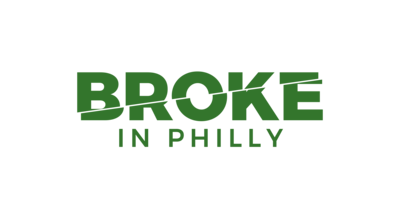This article was originally published in The Notebook. In August 2020, The Notebook became Chalkbeat Philadelphia.
Millions of Americans are out of work due to COVID-19. The nationwide unemployment rate has risen to 14.7%, and, in Pennsylvania, the pandemic has claimed more than 1 million jobs.
But despite the spike in unemployment across the state and nation, 8,000 to 9,000 12- to 24-year-olds in Philadelphia will definitely be employed this summer, thanks to the Philadelphia Youth Network’s WorkReady program. To prevent the program from shutting down amid the coronavirus pandemic, Chekemma Fulmore-Towsend, the president and CEO of PYN, decided to move WorkReady online this summer.
Fulmore-Townsend said the ultimate goal of the program is to “alleviate poverty through education and employment.” When coronavirus isn’t complicating the picture, the jobs span fields from arts and culture to engineering.

This year, however, young people who participate will have the opportunity to take part in three digital courses — financial literacy, digital identity and branding, and digital career exposure — where they can earn up to $595 for the summer.
The digital identity and branding course will aim to give students technology skills for 21st-century jobs. The digital career exposure course will allow students to explore a career of their choice and develop a career plan. The financial literacy course will teach about entrepreneurship, saving money, and investing.
Fulmore-Townsend said PYN would help businesses and organizations that want to participate in the program.
“We are willing to work with businesses to think through what are some projects that can be done virtually or digitally, best practices around supervision and guidance, and virtual career-shadowing,” she said.
PYN works with more than 70 partner companies and organizations to deliver jobs to youths every year. One of those partner organizations is the Netter Center at the University of Pennsylvania, which runs the Bridges to Wealth program under WorkReady’s financial literacy division. Jill Bazelon, the program’s director, said its mission is in its name: “to bridge the wealth gap between poor and wealthy students in Philadelphia.”
Bridges to Wealth is a year-round program. During the academic year, Penn sends out mentors to schools to teach kids about the stock market, personal finance, and entrepreneurship. The program culminates in a project, where students form groups and build their own businesses. In April, students pitch their business ideas to a panel of judges, the way contestants do on the Shark Tank TV show. This panel, though, is from FS Investments, the program’s sponsor, and the students compete for a prize of up to $1,000.
Eilmane Mamadou, a student at South Philadelphia High School, won that contest last year. His business idea involved helping teens land internships at prestigious institutions.
“I came up with the idea … because it was really hard for me to find jobs,” Mamadou said. He said he thinks jobs for teens are very important because “you don’t really learn the skills that you’re going to need for the future in school.”
Mamadou said he’s a lot smarter with his money now that he’s completed the Bridges to Wealth program. He comes from a disadvantaged financial situation and believes that a common problem among low-income individuals is that they have never been taught how to manage their money.
“I’ve learned how to really save my money instead of spending it on really anything,” Mamadou said. “I taught my family how to invest in stocks. … That’s money that’s going to be there when you get older.”
This year’s competition has been postponed to July, and the young entrepreneurs have refocused their businesses to help Philadelphia students and families cope with the coronavirus.
One student in the program put a poll on her Instagram asking students whether they have WiFi. Another group of students had planned to build a business around fixing iPhone screens; now, they’ve morphed into a technical support service for students who have new Chromebooks.
“I think the most challenging thing is tech access for our students and families,” Bazelon said.
Bridges to Wealth has also developed a library of videos offering financial education that WorkReady will use this summer for its financial literacy course.
But just because the program is online this year doesn’t mean it’s easier to get in. The Bridges to Wealth program has about 20 slots, and it is usually inundated with applications. For the entire WorkReady program, Fulmore-Townsend said that around 16,000 students usually apply, and only about half of applicants receive jobs. So far this year, they’ve received 9,000 applications.
Twelve- to 24-year-olds can apply on the WorkReady website through June by hitting the “apply now” button and following the directed steps. To be eligible, students must also provide their date of birth, Social Security number, email address, and a valid photo ID — a school ID is sufficient. Students under 18 won’t need a work permit this year, because WorkReady has converted its pay model from wages to an incentive-based program.
Similar organizations to PYN exist in Boston and Chicago. In New York City, the youth summer jobs program that employs 75,000 teens every summer was recently canceled. Other youth summer jobs programs are also on the ropes due to COVID-19. According to Fulmore-Townsend, Philadelphia is the first city to move the program online.
The Notebook is one of 19 news organizations producing Broke in Philly, a collaborative reporting project on solutions to poverty and the city’s push toward economic justice. Read more at https://brokeinphilly.org and follow us on twitter @BrokeInPhilly.


